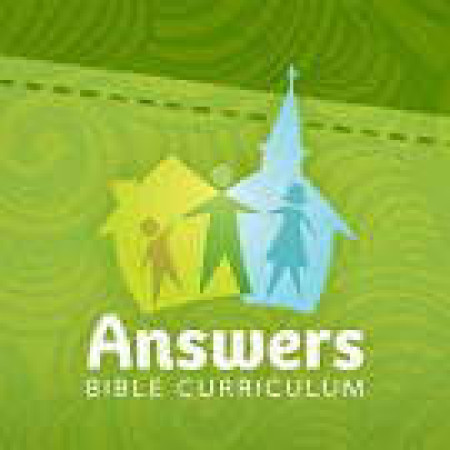In this lesson, we examine why God judged mankind for its sin at Babel, how that judgment resulted in different languages and people groups, and how the memory of Babel is evident today in cultures around the world.
Sermons & Sunday Schools
Sermons/Sunday Schools in the series Answers Bible Curriculum, First Edition: (Page 13)
Reshaping the Earth
- Speaker: David Capoccia
- Series: Answers Bible Curriculum, First Edition
- Text: Genesis 7:10-12
- Topics: Apologetics, Creation & The Flood
- Downloads: mp3
In this lesson, we discuss the theory of Catastrophic Plate Tectonics as we explore how the Flood event reshaped the earth’s geology, geography, and topography.
How Large Was The Ark?
- Speaker: David Capoccia
- Series: Answers Bible Curriculum, First Edition
- Text: Genesis 6:13-22
- Topics: Apologetics, Creation & The Flood
- Downloads: mp3
In this lesson, we answer objections to the Genesis flood account due to the ark: how could the ark have endured a year of flood waters and fit all of the animals, dinosaurs included? As part of this discussion, we consider the likely size and shape of the ark and just which animals Noah would have had aboard.
Was the Flood Global?
- Speaker: David Capoccia
- Series: Answers Bible Curriculum, First Edition
- Text: Genesis 7:17-9:17
- Topics: Apologetics, Creation & The Flood
- Downloads: mp3
In this lesson, we answer whether the Flood of Genesis 6-9 could have been local in any sense and what support there is for a global view. We analyze the descriptions of the rising waters in the Flood account, examine the rainbow covenant’s impact on our Flood viewpoint, and compare flood legends from around the world…
God Saves Noah
- Speaker: David Capoccia
- Series: Answers Bible Curriculum, First Edition
- Text: Genesis 6:5-7:1
- Topics: Apologetics, Creation & The Flood, Satan & Demons
- Downloads: mp3
In this Sunday school, we discuss the meaning of “the Sons of God” in Genesis 6:1-4, investigate what perished in and what survived the Flood, and establish a timeline for the different Flood events.
Catastrophe: The Flood
- Speaker: David Capoccia
- Series: Answers Bible Curriculum, First Edition
- Text: Genesis 6:5-7:1
- Topics: Apologetics, Creation & The Flood, Salvation & The Gospel
- Downloads: mp3
In this lesson, we examine the call of Noah at the beginning of the Flood account in Genesis. We also look to answer two questions: Why did God have to send a flood to destroy the world? And was Noah spared from the Flood because of his good works?
Death Before the Fall?
- Speaker: David Capoccia
- Series: Answers Bible Curriculum, First Edition
- Text: Selected Scriptures
- Topics: Apologetics, Creation & The Flood, Fall & Original Sin
- Downloads: mp3
In this lesson, we examine whether it’s possible, as many old-earth advocates contend, that death existed before Adam and Eve’s sin.
The Hearts of Man
- Speaker: David Capoccia
- Series: Answers Bible Curriculum, First Edition
- Text: Selected Scriptures
- Topics: Apologetics, Fall & Original Sin, Salvation & The Gospel
- Downloads: mp3
In this lesson, we discuss the state of man’s heart in light of Adam’s fall and the rest of the Bible: is man basically good, evil, or malleable? We also examine whether any man is able to choose God on his own and how the doctrine of original sin should affect our presentations of the gospel today.
Cain and Abel
- Speaker: David Capoccia
- Series: Answers Bible Curriculum, First Edition
- Text: Genesis 4:1-18
- Topics: Apologetics, Fall & Original Sin, Salvation & The Gospel
- Downloads: mp3
In this lesson, we examine the account of Cain and Abel, considering why Cain’s sacrifice was rejected, why Cain killed his brother, and what this historical event means for us today. We also answer this question: “Where did Cain get his wife?”
Effects of the Fall
- Speaker: David Capoccia
- Series: Answers Bible Curriculum, First Edition
- Text: Genesis 3:8-19
- Topics: Apologetics, Fall & Original Sin, Salvation & The Gospel
- Downloads: mp3
In this lesson, we discuss the different effects of the Fall evident in God’s confrontation of Adam and Eve and in the curses God pronounces as punishment for their disobedience; the curses have implications for Satan, child rearing, marriage, work, and death. We also examine how believing in Jesus Christ rescues one from all of these…

